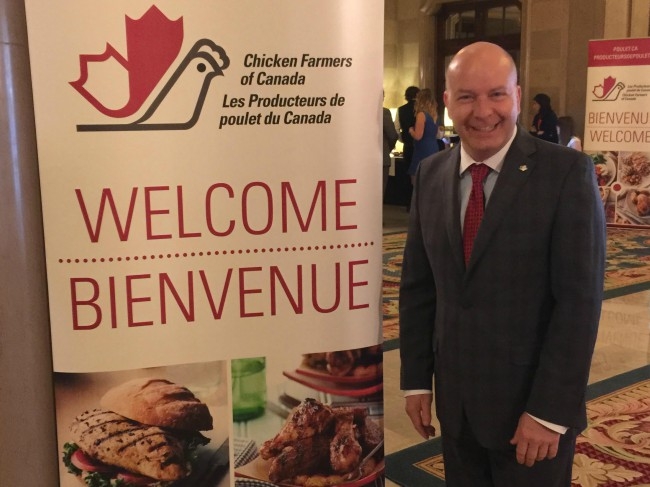
Chicken farmers slam new TPP agreement
By Chicken Farmers of Canada
Features Business & Policy Trade TradeCFC says deal gives away market access and gets nothing in return.
 CFC chair Benoît Fontaine says producers have reached the limit of what they can give in any future negotiations.
CFC chair Benoît Fontaine says producers have reached the limit of what they can give in any future negotiations. January 24, 2018, Ottawa, Ont. – Chicken Farmers of Canada has slammed the new Comprehensive and Progressive Trans-Pacific Partnership (CPTPP) agreement, framing it as a giveaway.
The deal includes concessions on market access for chicken products that were granted in the original Trans-Pacific Partnership (TPP) in response to U.S. demands.
Given that the U.S. has since withdrawn from the TPP, those concessions should have been taken off the table, the organization said in a press release.
CFC said this is especially true since none of the other partners have provided anything in exchange for this increased access to the Canadian chicken market.
The new CPTPP access represents an additional 2.1 per cent of the Canadian production that will be imported, in addition to Canada’s existing commitments of 7.5 per cent for a total of 9.6 per cent.
“It is more important than ever that the government start closing the loopholes and implementing the programs that were previously promised when the TPP was first concluded,” said Benoît Fontaine, chair of Chicken Farmers of Canada.
He was referring to commitments made in October 2015 to deliver the support programs and implement the anti-circumvention measures relating to chicken.
These include mislabeled broiler chicken imported as spent fowl, the addition of sauce to circumvent import quotas and excluding supply-managed products from DRP (duties relief program) to stop the loopholes announced at the conclusion of the original agreement.
Together, the circumventions have resulted in annual losses of:
- Over $139 million in farm cash receipts
- 4,456 jobs
- $335.3 million to the GDP
- $11.9 million in tax revenues
“Increased access to the Canadian chicken market, especially without gaining something in return, is going to impact jobs from coast to coast,” Fontaine said. “These programs will help lessen the damage being done by the giving away of our market access.”
Fontaine added, “We need to make it clear that we have reached the limit of what we can give in any future negotiations. If the U.S. wants access to our market, for example, they are welcome to rejoin the CPTPP.”
Print this page